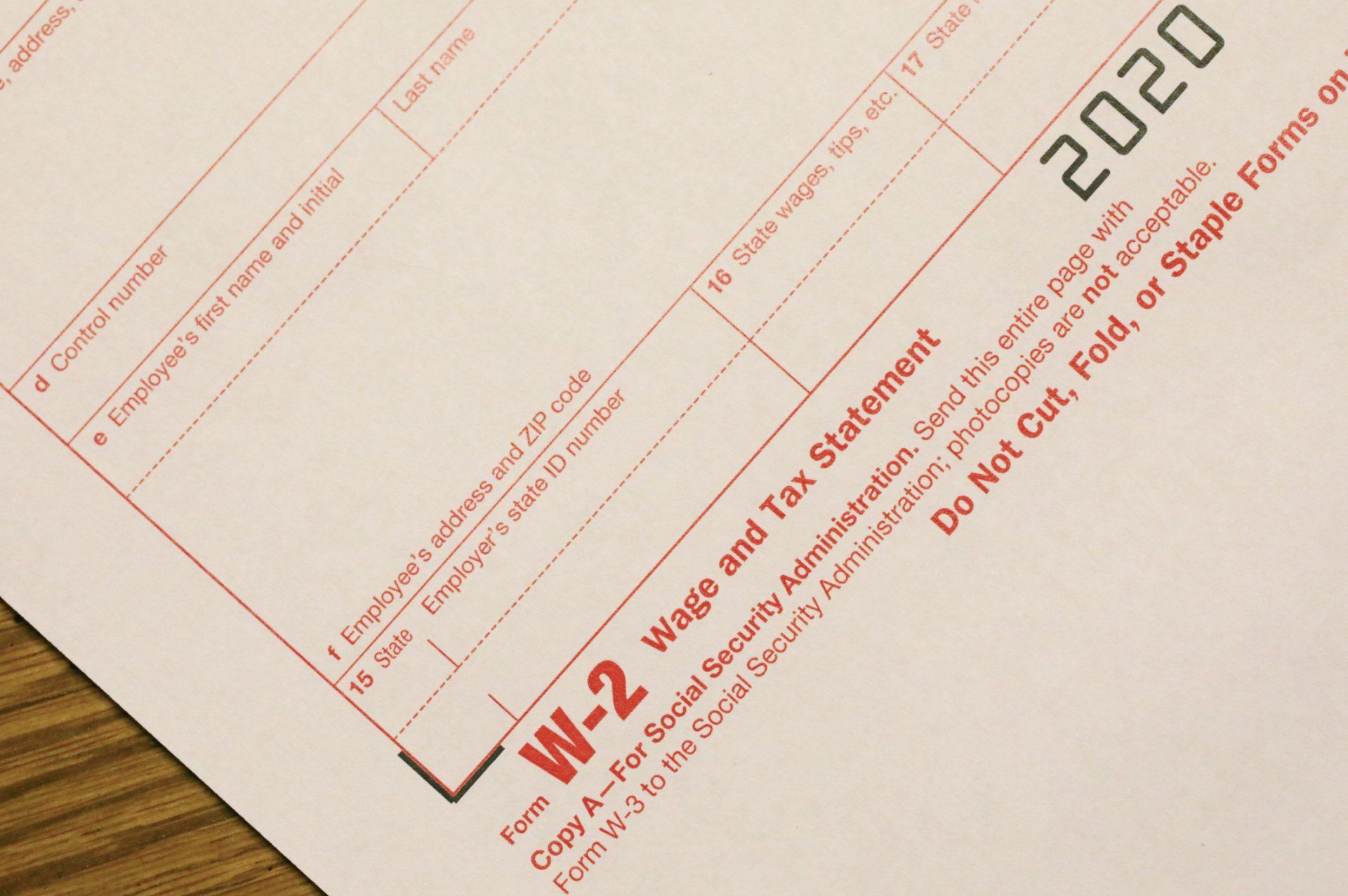Options for Resolving Federal Income Tax Debt
Bankruptcy
Federal income tax debt is dischargeable in bankruptcy if:
- The return for the taxes at issue was last due at least 3 years ago,
- The return was filed at least 2 years ago,
- The tax was assessed more than 240 days ago,
- The IRS did not file an SFR before you filed a return,
- You didn’t file a fraudulent return, and
- You didn’t willfully attempt to evade or default such tax.
In most cases in the Western District of Texas, if you filed a return late, the IRS will agreed to the discharge of taxes for that year if they fall within the 3-2-240 requirements. In some jurisdictions the IRS will object and the local IRS office may change its policy in the future. If you never filed a return for a tax year, the taxes for that year are not dischargeable in bankruptcy.
Offer in Compromise - OIC
An Offer In Compromise it an agreement between the IRS and a taxpayer to settle tax debt for what the IRS could reasonably expect to collect from you based on IRS criteria rather than the full amount of taxes you owe. You submit an offer with required forms and supporting documents showing that you qualify for an OIC. The IRS will file Notice of Intent to File a Tax Lien while your offer is pending. The lien will be released if the offer is accepted and completed. If you sell property subject to the lien before you make all payments on the offer and the lien has not been released, the IRS will take proceeds of the sale to apply to your tax liability.
Not everyone is eligible for an offer in compromise and even if you are eligible, the IRS is not required to accept your offer.
There are three main types of Offers in Compromise:
Doubt as to Liability (DATL)
You file this type of offer when there is a genuine dispute about whether you owe the taxes or the amount of those taxes – such as when you failed to dispute or appeal an assessment before the deadline to do so. If there has been a final court decision that you owe the taxes, you are not eligible for a DATL offer. The DATL offer only covers the years for which you claim you are not liable – any other taxes have to be dealt with by different means.
Doubt as to Collectibility (DATC)
You file this type of offer when you owe the taxes at issue but can’t pay them in full before the expiration of the statute of limitations (called the CSED in tax-land) through an installment agreement or from the equity in your assets (including retirement funds). As in bankruptcy, your ability to pay is calculated based on your income, your allowable expenses and the equity in your assets. However, the equity in your home and amounts in retirement accounts that you can access are not excluded for determining your ability to pay as they are in bankruptcy. Additionally, the allowable expenses are more limited than in bankruptcy.
Effective Tax Administration (ETA)
You owe the taxes and under the IRS calculations you are able to pay, but there are exceptional circumstances that either:
(a) create an economic hardship for you and your family if you are required to pay the taxes. You must be unable to pay basic (not affluent or luxurious) living expenses because of special circumstances such as a disabled child, a long-term medical condition, limited income due to age and health, and be unable to borrow against equity in assets.
(b) provide a compelling public policy or equitable basis for compromise, such as liability arising from reliance on bad advice from the IRS, from processing or other errors or unreasonable delay by the IRS, or from criminal or fraudulent actions of a third party such as a payroll service provider and you acted reasonably.
A main policy reason for allowing Offers in Compromise is to bring taxpayers into compliance with tax laws and keep them in compliance in the future. Future compliance is vital. If your OIC is accepted, you must remain current with all tax filing and payment obligations through the fifth year after your offer is accepted (including any extensions). This means:
· You must file all tax returns on time.
· You must withhold sufficient amounts so you don’t owe at year end.
· You must make quarterly payments, if required.
If you do not withhold enough in any year, if you do not make quarterly payments if required to do so, if you do not file a tax return on time, or if you for any reason end up owing taxes in the five years after acceptance, your offer may be defaulted, in which case you will be liable for the original tax debt and all accrued interest and penalties – less any payments you made.
The IRS will keep your tax refund for tax periods extending through the calendar year that the IRS accepts your offer. (If your offer is accepted in 2020 they will keep your tax refund for 2020 – which you file in 2021). The refund will not be applied to your offer.
You cannot pay your offer amount with:
- an expected or current tax refund,
- money already paid to the IRS,
- funds attached by any collection action, or
- anticipated benefits from a capital or net operating loss.
Offers in Compromise - Eligibility
To be eligible for an Offer in Compromise, you must:
- File all tax returns you are legally required to file
- Have received a bill or at least been assessed for the tax debt included in your offer
- Make all required estimated tax payments for the current year
- Make all required federal tax deposits for the current quarter if you are a business owner with employees.
- Not be able to pay your tax debt in full through an installment agreement or by liquidating the equity in your assets.
You are also not eligible if:
- You or your business is in an open bankruptcy case (in some jurisdictions),
- IRS has a criminal referral involving the liabilities in the offer to the Dept of Justice,
- For any amount arising from a restitution amount ordered by a court or a tax debt that has been reduced to judgment,
- Any 965 tax liability for which an election was made under 965(i),
- You have a pending Doubt as to Liability Offer or Effective Tax Administration claim, or
- Your business owes trust fund taxes and the employer has entered into a compromise for a portion of the trust fund tax liability, unless the trust fund portion of the tax is paid or the Trust Fund Recovery Penalty determination has been made on all potentially responsible individuals.
If you file an offer and are determined to be not eligible, the IRS will keep the money you send but not accept your offer.
Currently Not Collectible (CNC)
If you are temporarily unemployed or underemployed, you may qualify for CNC status. Your income must be so low that paying the taxes would cause a significant hardship. Significant hardship means you have nothing left after paying basic living expenses. Basic does not include paying a mortgage or car note above the IRS guidelines for those expenses – even if your mortgage company and car lender disagree. While you are in CNC status, the IRS won’t garnish your wages or levy your bank accounts, but it will garnish your tax refunds. Penalties and interest will continue to accrue. They will usually file a lien if you owe more than $10,000. You can start the process by phone, but you must provide the IRS with proof of your financial situation. The IRS will review your financial situation each year to confirm that you still qualify.
Installment Agreement (IA)
If the IRS formula determines that you can pay the tax liability in full over remainder of the statute of limitations (the CSED) – which is ten years from the date the taxes are assessed – you do not qualify for an Offer in Compromise but you do qualify for an Installment Agreement with the IRS.
Steamlined version – You are not required to submit financial documents if your total tax liability is $100,000 or less and you can pay the full amount within 84 months. You can set up an installment agreement by phone, and the IRS will tell you what your monthly payment will be over the phone. Amounts and time periods may be different during Covid.
Non-streamlined version – If your total tax liability is more than $100,000 or the IRS formula determines that you cannot pay within 84 months, then you must submit the required financial documents.
The IRS will file Notice of Intent to File Tax Lien and will release it after you complete the installment agreement.
Trust Fund Taxes
Trust Fund or 941 Taxes are not income taxes but are taxes collected on behalf of a governmental entity. The most common types are employee withholding taxes and sales taxes. An employer is required to withhold from an employee’s paycheck income taxes (FICA), social security taxes (FUTA), and Medicare taxes and to pass these withheld amounts on to the IRS. The employer is also required to match these amounts and pay the matched amounts to the IRS – which are known as match amounts or 940 taxes. The 941 taxes are never dischargeable in bankruptcy; 940 taxes may be.
Trust fund taxes may typically be assessed against “responsible persons,” which includes not only officers and directors but employees who can sign on bank accounts. The theory is that if they could sign checks they could have signed the checks to pay the taxes. If you are a responsible party, you are not eligible for an offer in compromise if your business owes trust fund taxes and the business/employer has entered into a compromise for a portion of the trust fund tax liability, unless the trust fund portion of the tax is paid or the Trust Fund Recovery Penalty determination has been made on all potentially responsible individuals.
Sales taxes are also trust fund taxes as they are collected by the seller on behalf of the Texas Comptroller. Sales taxes for goods or services are not dischargeable in bankruptcy.
Calculating Reasonable Collection Potential
When determining whether to accept an offer in compromise, the IRS calculates the Reasonable Collection Potential (RCP) of your tax liability.
The basic formula is: RCP = Equity in Assets + Future Income
The net realizable equity in your assets, which is the quick sale value (QSV) – which is usually (but not always) 80% of the fair market value. If something could be sold quickly at full value, the IRS may require you to use the full fair market value. This calculation includes the equity you have in your home, money you have in your retirement accounts (less any penalty you would have to pay to take cash out), equity of more than $4000 in a vehicle (or in each of two if you are married), stocks and other assets that are not necessary for a basic standard of living. If you own more than two vehicles, all of the equity in the additional vehicles is counted – even if you have additional family members who drive them.
Your future income less allowable deductions
If you propose to pay the offer in compromise in 1-5 payments, then your income for this calculation will be the lower of your projected income (a) over the next 12 months or (b) remaining period on the statute of limitations for collection.
If you propose to pay the offer in compromise in 6-24 months, then your income for this calculation will be the lower of your projected income for (a) next 24 months or (b) the remaining period on the statute of limitations for collection.
Allowable deductions are the IRS guidelines for basic living expenses for you and your dependents (your household size). The guidelines may be significantly lower than your actual expenses. Unlike in bankruptcy, you must use the lower of your actual your mortgage or car payment and the IRS guideline. So if your mortgage payment is $2,500 per month and the IRS guideline is only $1,700, you are limited to $1,700. It doesn’t matter that you will lose your home if you don’t pay the full $2,500. Voluntary 401(k) or other retirement contributions are not considered basic living expenses, nor are charitable contributions unless they are required by your job.
The IRS will add to RCP:
Any amounts collectible from 3rd parties:
If you transferred any assets to a third party, the IRS can impose a transferee assessment or file suit to set aside the “fraudulent conveyance.” They may also include any amounts they could recover by enforcing a filed nominee Notice of Federal Tax Lien.
The value of any assets and/or income available to you but beyond reach of government such as assets located outside of the country.




